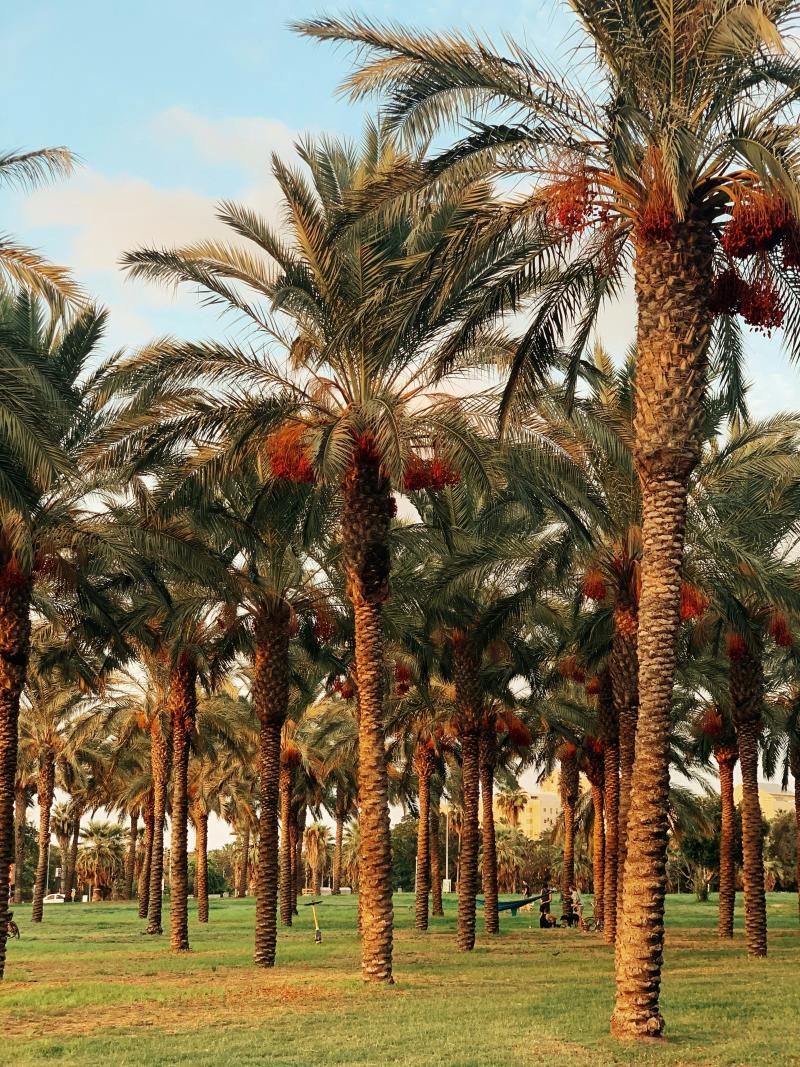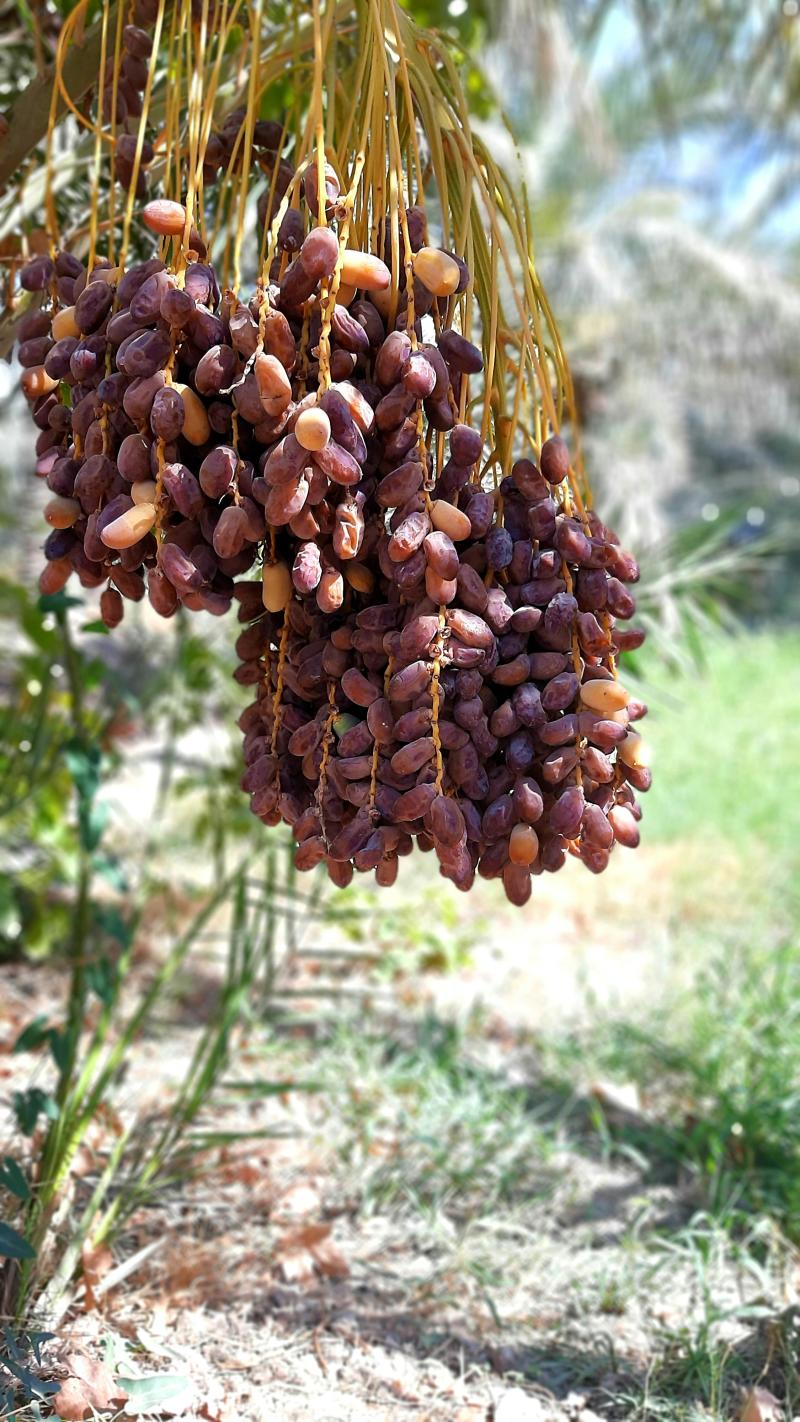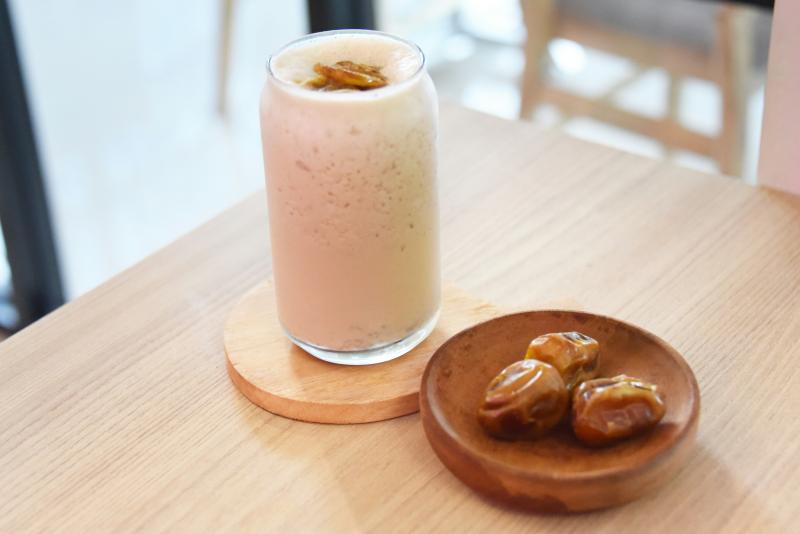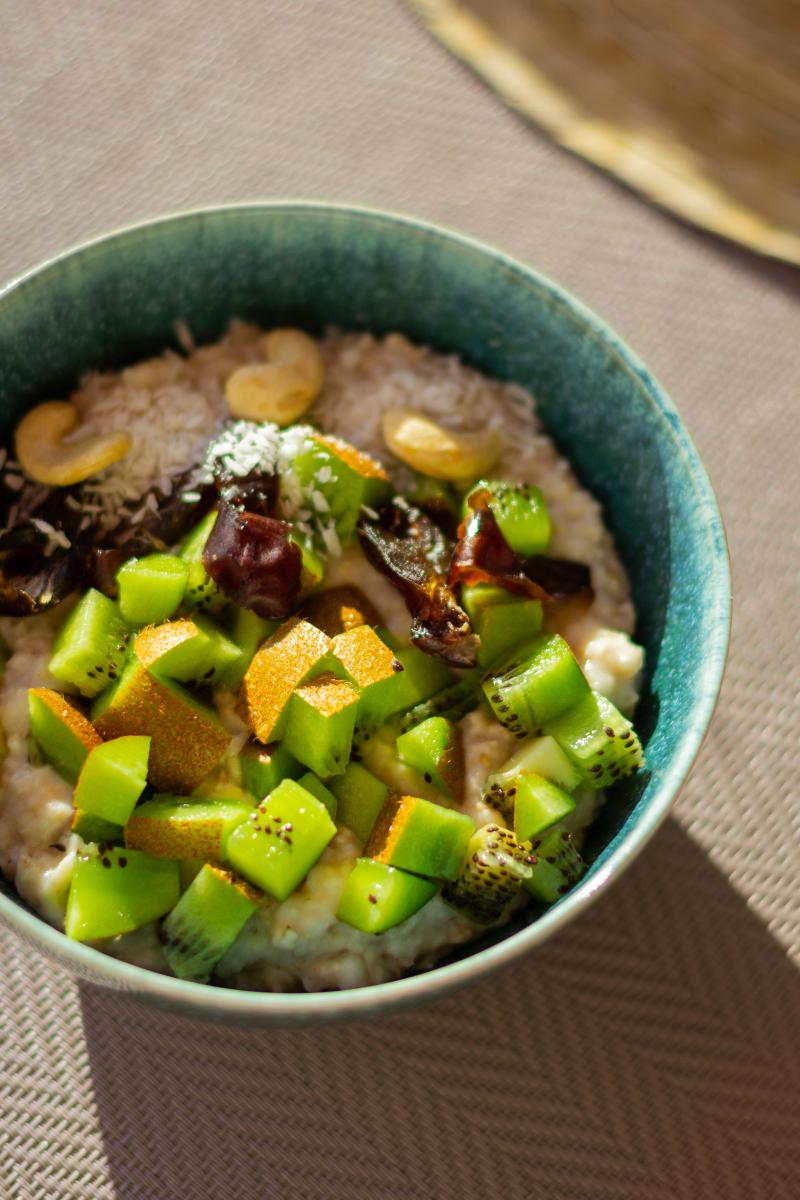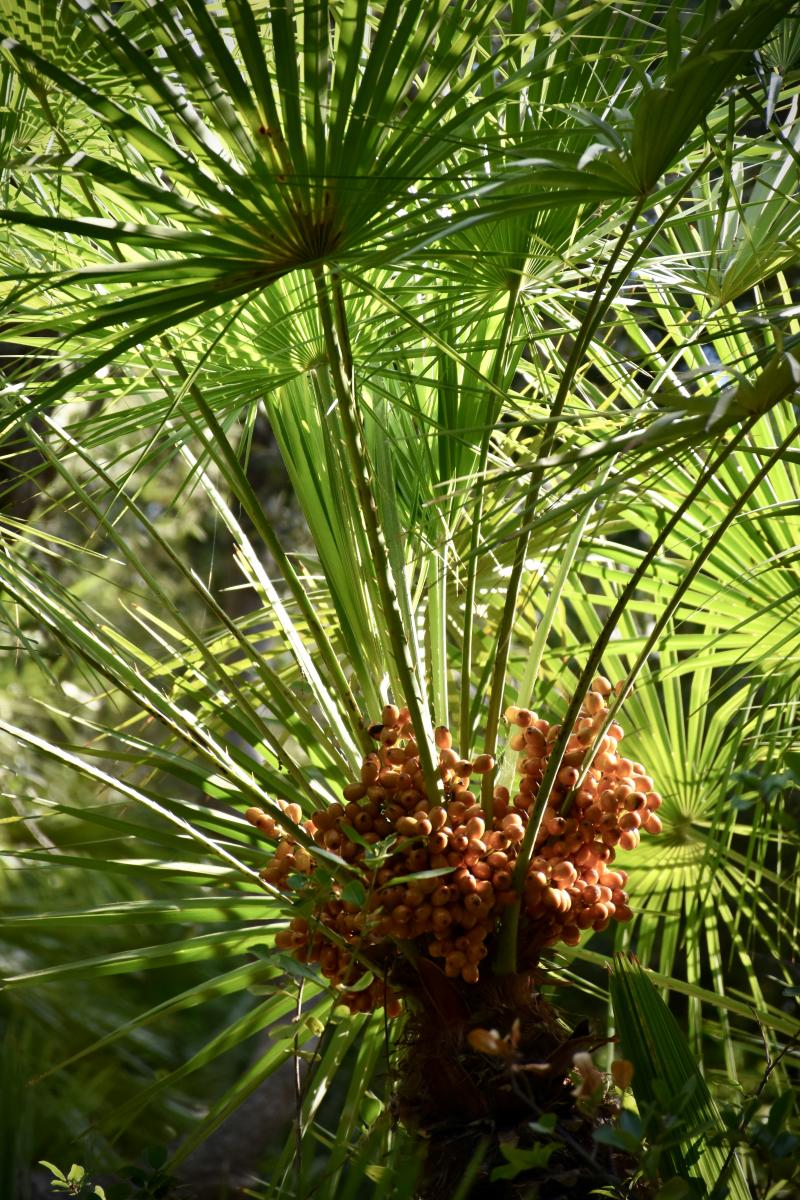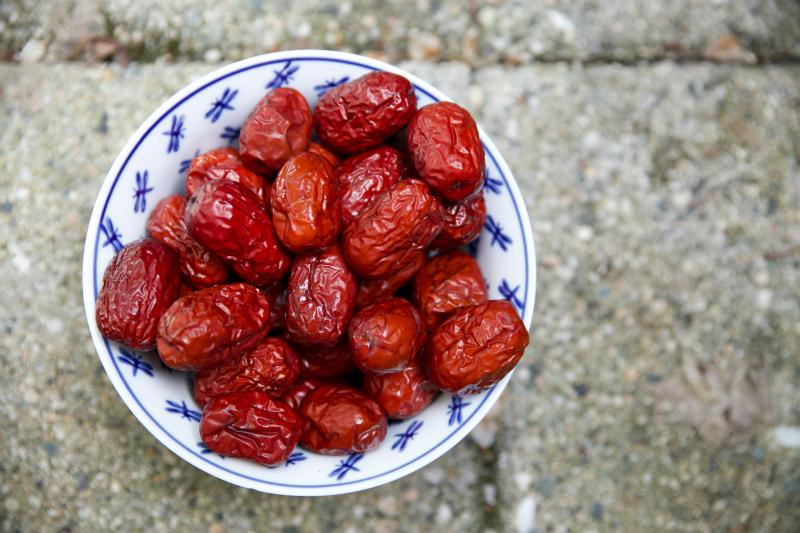A History of Dates: Exploring the culinary and cultural significance of Saudi Arabia's iconic fruit
A History of Dates: Exploring the culinary and cultural significance of Saudi Arabia's iconic fruit
These fruits are a unifying Saudi staple that create sweet bonds, especially during the Holy Month of Ramadan and throughout Eid celebrations

Dates, the small nuggets of sweetness known for their rich, caramel-like flavour and versatile culinary uses, have been delighting taste buds in Saudi for centuries.
These elongated stone fruits, which come in differing shades of brown, and can even be black when ripe, and take on a delightful wrinkled appearance as their skin dries, have been a long-time iconic symbol of hospitality. Usually accompanied with a coffee, dates are part of the usual warm welcome to visitors entering Saudi homes.
Originating in the Middle East over 6,000 years ago, dates have not only stood the test of time but have become a culinary treasure. Adored for their natural saccharinity, nutrition, and long shelf life, these delectable fruits continue to captivate palates, offering over 300 flavours and textures in the Kingdom alone.
While essentially Middle Eastern, the "fruits of paradise" hold a special place for Muslims worldwide during the holy month. In fact, dates are a staple at Iftar, and breaking the fast with them is a tradition that connects Muslims to centuries of history. The date palm, also known as the "tree of life," is referenced throughout the Qur'an, more than any other fruit tree.
Nutritional Dynamos
More than a tasty treat, dates are nutritional powerhouses. These heart-smart foods are packed with fibre and antioxidants, are richer than bananas in potassium, and even have the likes of magnesium and various vitamins to boot. In addition, dates are a natural energy boost, which is why they are seen as a significant part of Ramadan.
Need of a quick pick-me-up? Grab a date and you're good to go. Plus, they are easy to carry and pop (just remember there’s a pit), making them the perfect snack on the go. Also, if you're looking for a guilt-free sweet option, they’re a wholesome alternative to refined sugars, making them a hit in modern health-conscious diets.
Variety Galore
Saudi is home to over 34 million date palms, predominantly found in Al Qassim, followed by Madinah and Riyadh. There are many date farms and markets scattered across the country, and the central date market in Madinah is worth the visit for those who have not been before. Here you’ll find over 100 vendors selling more than 150 types of dates.
With such a wide range of Saudi dates to explore, it’s difficult to know where to start. As a personal recommendation, the forefront of your list should include Ajwa, Anbara, Khalas, Mabroom, Safawi, Saghai, and Zahidi, each offering a unique and delightful flavour experience. If you get the chance, don't overlook other noteworthy varieties during your date tasting expedition.
Barhi are delicate, highly seasonal, and often sold on branches. A popular treat that is enjoyed fresh, their subtle sweetness and crunch make them unique. Meanwhile, Sukkari are golden and named after the Arabic word for sugar. This date is the perfect match with coffee or tea, with its crystallised sugar exterior and caramel-like interior, offering an enjoyable blend of textures and flavours. Then there's Khudri, with its dark red, flaky skin and chewy flesh. A popular choice with date enthusiasts, this kind is frequently found in shops and hotel receptions.
“Dates hold a profound significance in Saudi cuisine, symbolising hospitality and tradition. With a variety ranging from Sukkari's sweetness to Ajwa's revered status, these fruits weave into dishes, adding depth and flavour. Integral to celebrations and daily life, dates reflect the rich culinary heritage of Saudi Arabia," says Chef Rabbaeh Mekwar of the Four Seasons Hotel Riyadh.
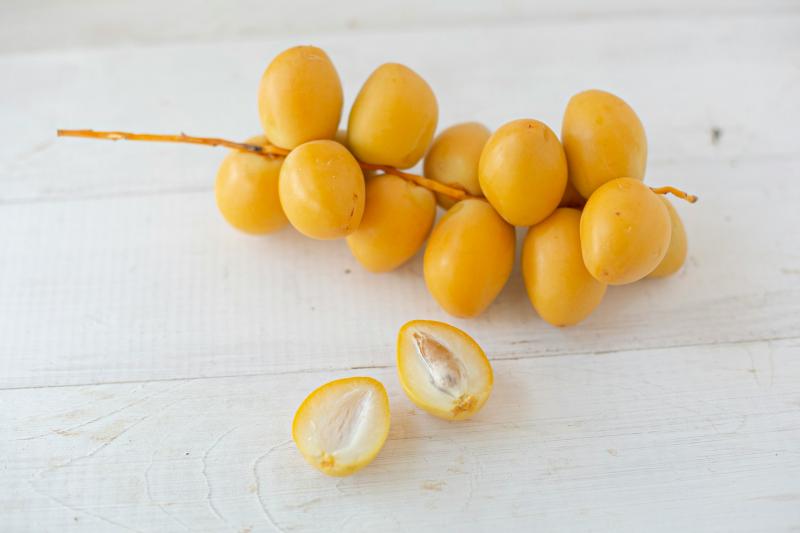
Fresh Dates
In Saudi, dates are celebrated all year round, simply enjoyed as they are and filled in appetising family treats. They elevate maamoul, a delicious butter cookie made with semolina flour. Blended with dried dates and paired with nuts such as pistachios, walnuts, or occasional almonds, maamoul is prepared a few days before Eid. The date-filled treats not only represent a sweet connection to heritage but also serve as the perfect accompaniment to a relaxing cup of coffee, making them a memorable indulgence for all the family to enjoy.
In a world where trends come and go, dates remain timeless.
They're not just a part of our diet; they're a part of Saudi’s story. So, the next time you bite into a date, remember, you're not just savouring a sweet delight; you're also tasting a piece of history.


